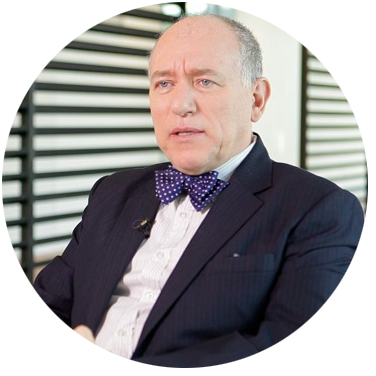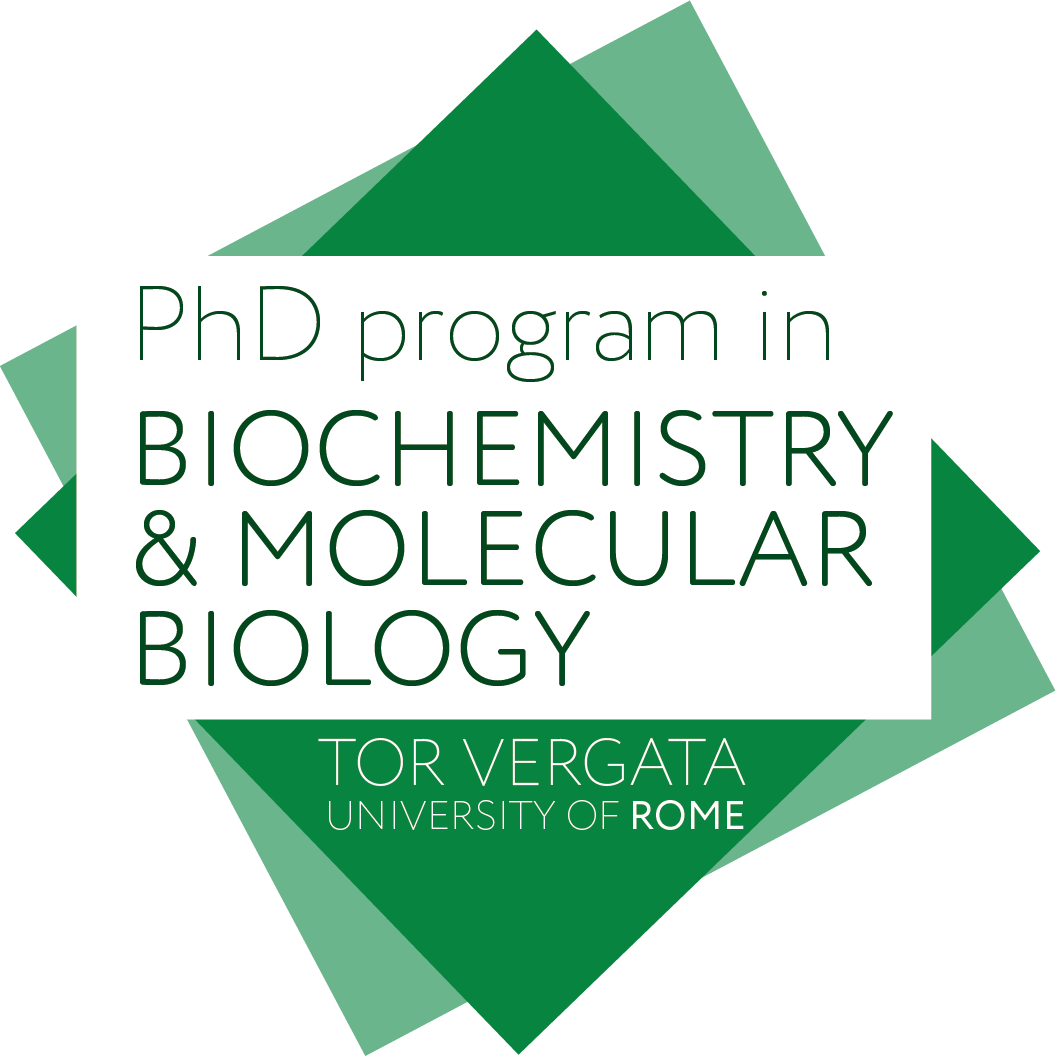< Back to Faculty
Prof Gerry Melino

Tel: +39 06 7259 6686
Email: melino@uniroma2.it
Office:
Building F nord, IV floor room F481
Faculty of Medicine and Surgery
Department of Experimental Medicine
University of Rome “Tor Vergata”
Via Montpellier 1 – 00133 Rome | Italy![]() ORCID |
ORCID | ![]() Twitter
Twitter
Short biographical sketch of Prof Gerry Melino
Gerry Melino is a Full Professor of Biochemistry at University of Rome “Tor Vergata” (Italy). He is a Member of Accademia Lincei & Accademia Europaea. Prof Melino is Founder & Editor-in-Chief of 3 journals – Cell Death Differentiation (IF 12.1), Cell Death Disease (IF 9.7), and Cell Death Discovery (IF 7.1), as well as a member of several other Editorial Boards and Scientific Advisor for several Governmental Institutions. His training originated in Rome, Italy, where he obtained his M.D. (1978, University of Rome) followed by clinical specialisations in Paediatrics (1981) and Clinical Oncology (1985); the Ph.D. (1984) was at the University of London, UK, where he became Consultant. His scientific interest with almost 700 papers (H-index 105; Citations 56000) are focused on programmed cell death in epidermal and neural models, and in particular on the p53 family – p63 and p73, in cancer progression.
Full curriculum vitae of Prof Gerry Melino
Professor Gerry Melino currently works as Professor of Biochemistry at University of Rome “Tor Vergata” in Italy. He is also Program Director of the PhD in Biochemistry and Molecular Biology.
His training originated in Italy, in particular Rome, where he obtained his M.D. (1978, University of Rome) followed by clinical specialisations in Paediatrics (1981, University of Rome) and Clinical Oncology (1985, University of Rome). He obtained his Ph.D in 1984 at the University of London in the Chemical Pathology Department, Charing Cross & Westminster Medical School. Upon graduation, he worked as Research Fellow, then Lecturer and later Senior Lecturer (Honorary Consultant) until 1987. Professor Melino returned to Italy in 1988 to University of Rome as a Lecturer before becoming a full Professor in 1994. Professor Melino has acted as Consultant and Scientific Advisor for several companies and government institutions. He also has significant Editorial activity as Founder and Editor-in-Chief of the Springer Nature journals Cell Death Differentiation (IF 12.1), Cell Death Disease (IF 9.7), and Cell Death Discovery (IF 7.1), as well as serving on the editorial boards of several other scientific journals.
Education
1978 | M.D. (Rome). Final grade 110/110 cum laude (honours)
1981 | Specialisation in Paediatrics (Rome). (Accreditation). Final grade 70/70 cum laude (honours)
1984 | Ph.D. (London) in Tumour Immunology. Examiners Profs A Davies and G Janossy, superviser JR Hobbs
1985 | Specialisation in Oncology (Rome). (Accreditation). Final grade 70
Awards
2009 | “Feltrinelli Prize” by the “Accademia dei Lincei” awarded by the President of Italy.
2010 | “Antonini Award”, Italian Biochemical Society.
Previous appointments
1972 to 1979 | Biochemistry Institute of Rome University. Research student. Worked under the supervision of Profs. E. Chiancone and E. Antonini. Experimental work on structure-function relationship of ferritin. Worked with Profs. A. Finazzi-Agro` and S. Stefanini, carrying out experiments on circular dichroism, spectrophotometric kinetics, analytical ultracentrifuge and manometric experiments. During that time has worked twice in UK (1.9.76 to 15.12.76 and 30.11.77 to 15.1.78) at the Biochemistry Dept., Lancaster University, UK. Visiting research student with Prof. C. Phelps on the interaction between calcium and heparin, using dialysis flow techniques.
1979 to 1986 | Chemical Pathology Dept., Charing Cross & Westminster Medical School., University of London. Worked with Prof. J.R. Hobbs on clinical and experimental tumour immunology of paediatric tumours and bone marrow transplantation. In particular on Drug Targetting in vitro and on patients, using allogeneic antineuroblastoma antibodies coupled to chlorambucil and daunorubicin.
1987 to 1994 | Research Fellow in Biochemistry (1987-1994), Experimental Medicine & Biochemstry Dept., University of Rome Tor Vergata, Italy. Locum Professor of Biochemistry (1991-1994), Biology Faculty, University of L’Aquila.
1994 to 1998 | Full Professor of Biochemistry (1991-1998), Biology Faculty, University of L’Aquila.
2010 Jan to Dec | Scientific Director, European Brain Research Institute, Rita Levi-Montalcini Foundation, Rome.
Academic experience
Chemical Immunology at the Charing-Cross & Westminster Medical School, London University, UK: Lecturer (1983-1984); Senior Lecturer (1985-1986).
Biochemistry, Biology Faculty, L’Aquila University: Locum Prof.(1991-1994), Full Professor (since 1994).
Biochemistry PhD, Adjunct Professor, P & M Curie University of Paris VI (yearly 1994-2003).
Visiting Professor: (i) University of Paris (1992-2001). (ii) University of Tucuman, Argentina (April 1997). (iii) Foundation for Promotion of Cancer Research, National Cancer Center Hospital, Tokyo, Japan (Feb. 1999). (iv) University of El Monsura, Egypt (March 1999). (v) Yamagata University, Japan(Feb. March 2003). (vi) Tirana University , Albania (Feb 2005)
Editorial experience
Editor-in-Chief for “CELL DEATH DIFFEREENTIATION” (Nature Publshing Group, London; www.nature.com/cdd), Impact Factor 9.050.
Editor-in-Chief for “CELL DEATH & DISEASE” (Nature Publshing Group, London; www.nature.com/cddis).
Editorial Board of “ONCOGENE”, Nature Publshing Group, London (www.nature.com/onc).
Editorial Board of “BIOCHEMICAL JOURNAL”, Portland Press, UK
Editorial Board of “CELL CYCLE”, Landes Bioscience, Editor-in-Chief M Blagosklonny.
Editorial Board of “CANCER BIOLOGY & THERAPY” Landes Bioscience, Editor-in-Chief W.El-Deiry.
Editorial Board of “MOLECULAR NEUROBIOLOGY”, Blackwell, Editor-in-Chief N Bazan.
Editorial Board of “AGING”, Impact-Aging, Landes Bioscience.
Referee for several scientific journals (e.g. Science, Nature, Nature Reviews, Nature Medicine, EMBOJ, MCB, JBC, JID, Cancer Res, J Cell Physiol, J Neurochem, Br J Cancer, Int J Cancer, Exp Cell Res).
Consultant, managing, and biotech experience
Scientific Advisory Board of Biotech Companies: “EiRx Therapeutics”, Ireland, Capgene (Paris), BioUniSA (Salerno), Chanel Parfume Beaute (Paris).
Consultant for several groups: Promark Ltd (UK), TotalRes Co. Ltd (UK) Serono Co. (CH), Chanel (F).
Scientific Advisory Board for the Government Ireland (SFI), UK (MRC), Finland (Academy of Science), Belgium (VIB), China (ISBS), Italy (CNR).
Scientific interests
The p53/p63/p73 family DNA damage elicit repair mechanisms involving the tumour suppressor gene p53. More recently, two additional members of the same family have been identified: p63 and p73. The molecular events driven by DNA damage to elicit the function of p63/p73 is investigated in vitro. In parallel, the transcriptional activity of p63/p73 is under scrutiny. The molecular mechanisms of apoptosis involving these two genes is also under investigation. Transgenic mice and knock for p63 or p73 is in progress.
Molecular mechanisms of cell death in epithelia The death of keartinocytes is also known as, corneification, or formation of the cornified envelope. The molecular events are investigated in vitro and in animal models as well as in human pathologies. The role of transglutaminases (type 1, 2, 3, and 5) is investigated at biochemical level; their substrates (SPRs, loricrin, keratins) are also characterized. These proteins are also evaluated in the skin diseases including lamellar ichthyosis, palmoplantar kerathosis, pachionikya congenita, Vowinkel syndrome, Sjoegren- Larsson syndrome. Knock-out mice for the transglutaminases (1, 2) are completed, new ones (3, 5) are in progress.
Trained staff
More than 35 students obtained the PhD or MD under the supervision of prof. G Melino. The following ones now have a permanent position: A Stephanou (Reader, ICH, Univ London, UK), ElSaid El Sherbini El Said (ex-Dean, now pro-Rector; University El Monsura, Egypt), V De Laurenzi (Associate Professor, Univ. Rome, I), E Candi (Assistant Professor, Univ. Rome, I), MV Catani (Associate Professor, Univ. Rome, I), L Bellincampi (Assistant Professor, Univ. Rome, I), S Oddi (Assistant Professor, Univ. Teramo, I), A Paradisi (Assistant Professor, Univ. Teramo, I),M Annicchiarico (Research Assistant, IDI-IRCCS, Rome, I), A Terrinoni (Research Assistant, IDI-IRCCS, Rome, I), F Bernassola (Research Assistant, IDI- IRCCS, Rome, I), D Barcaroli (Research Assistant, MRC, Leicester, UK), M Rossi (Research Assistant, MRC, Leicester, UK), Emre Sayan (Lecturer, Southampton, UK), Berna Sayan (Lecturer, Southampton, UK). – see more in the Alumni section.
Staff & funding
The Tor Vergata group includes 4 assistants (permanent positions), 4 post-Doc, 4 PhD students. Attracts about euro 300,000 per year in grants from industry, CNR, Health Ministry, European Union.
Meetings (as speaker or organisier)
See the full list here.
< Back to Faculty
